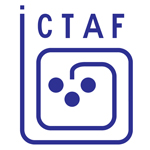Yair Aharonowitz is Professor of Microbiology and Biotechnology at Tel Aviv University (TAU). He served as TAU Vice President and Dean for R&D, Chairman of the Department of Microbiology and Biotechnology and Chairman of the Institute of Biotechnology and is a member of the TAU Board of Governors. Prof. Aharonowitz was responsible for many outstanding visionary programs, including the 4xD program (Drug Discovery Design and Development) that opened a new era in bio-research at TAU. He is a Fellow of the American Academy of Microbiology and a member of the Israeli Society of Microbiology.
Q. Are you aware of the Wi-We method?
No, the method is not known to me. However, I experienced in the past similar concepts and approaches in policy making, especially in defense.
Q. Can you propose some Wild Cards related to your fields of interest?
Yes, I can think of one wild card in biology research and another in the education system.
Wild Card in Life Sciences: Scientists will show that the DNA is not responsible for heredity, after all. I mean that research will lead to entirely new theories on heredity, or at least will put some significant question marks on the existing models. Such a development would have a dramatic impact on science, of course especially in the fields of medicine and biology.
Wild Card in education: The principal education program will be completed by the age of 18, including first years of university. The representative future graduate of such system will have a first university degree in the age of 18. This scenario means a significant change in high school curriculum as well as in the university curriculum.
Q. Do you think that these wild cards will have a particular impact on ERA?
These wild cards would have a very significant impact world-wide. ERA would not be especially effected, but undoubtedly they will have impact on the EU research agenda and on future science programs and policy.
Q. What other points would you like to raise regarding future life science research?
A further interesting topic for consideration in this context are the secrets hidden in the human Meta-Genome, which is a source of many unknown kinds of DNAs, culturable and nonculturable. These could give rise to new previously unknown organisms ("bad" or "good"), which could signal new breakthroughs.
Q. And regarding useful application of the Wi-We approach?
I find the WI-WE concept very interesting. I think it could be useful for policy planning in all levels. It should be presented to all concerned decision makers. In particular, I would propose to brainstorm on Wi-We's with an interdisciplinary forum of experts from different S&T fields. This could bring new ideas and new WI-WEs.
